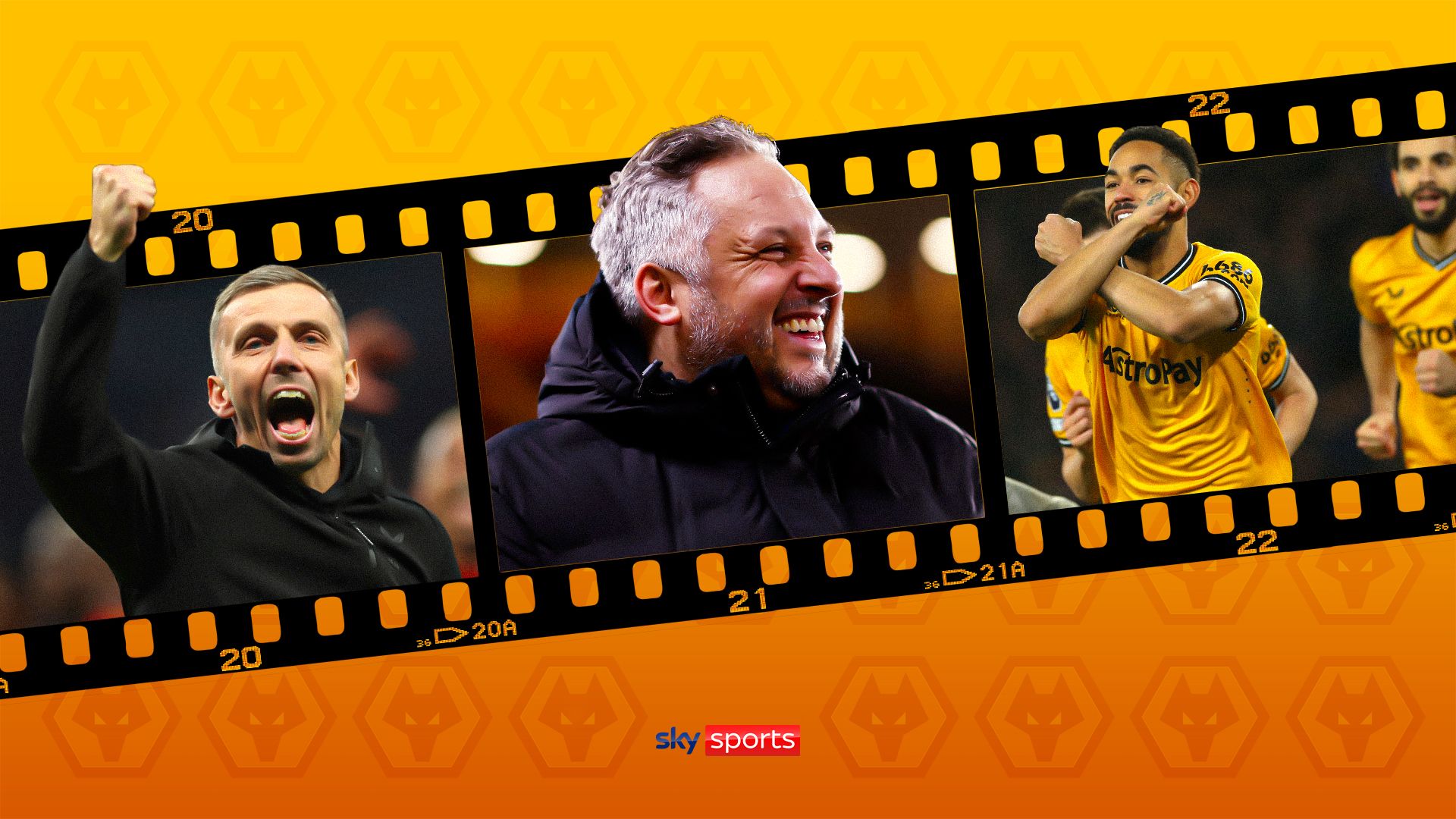
How Wolves found a new way to succeed under Gary O'Neil
Beat Coventry City at Molineux and Wolverhampton Wanderers are going to Wembley.
Before that, they have the opportunity to claim three Premier League points at home to Fulham, taking them up to eighth in the table.
Well into March and still with two routes into Europe.
Gary O’Neil has delivered against a difficult financial backdrop with the club announcing losses of £67m last weekend. Significant sums were clawed back by player sales in the summer as Wolves worked hard to meet profit and sustainability rules.
No wonder he is being talked of as the manager of the year.
The manner in which O’Neil has navigated the situation following Julen Lopetegui’s exit on the eve of the season, a move that had many tipping Wolves for relegation, has been impressive.
For Matt Hobbs, the club’s sporting director, it is vindication.
In a wide-ranging conversation with a small number of journalists at the club’s Compton training ground, Hobbs explains what it was that Wolves saw in O’Neil and why it has helped set them on a different path towards more sustainable success.
He outlines the new vision for Wolves and why supporters can embrace it. Players will be sold when the time – and the price – is right. But with smart recruitment, Hobbs is confident that this club can continue to confound expectations without spending to excess.
Before that, let us go back to that first meeting with O’Neil in London.
O’Neil’s meticulous planning
“Gary is unbelievably meticulous,” says Hobbs. “His attention to detail is incredible and his work ethic is incredible. When we met him, we thought there might be something special about him. He has not done anything to go away from that.”
Right from the start, O’Neil’s presentation blew Wolves away.
“I do not think anyone else spoke for the next couple hours,” he adds.
“He was going through everything he had done, how he had developed individuals and the team, what his style is and how he knew our players and how he would adapt our style, and then what he wanted to transition to over the next couple of years.”
Hobbs, working alongside Wolves’ chairman Jeff Shi, did his own research, of course. That included examining the period in which O’Neil worked with Liverpool’s development squad before he moved on to become senior first-team coach at Bournemouth.
“I spoke to a lot of people, like we do with players. I spoke to a lot of the guys at Liverpool. Some of the players and senior staff that were there at the time and the sporting director at the time. They confirmed everything that I thought I saw at the meeting.”
Hobbs saw someone who was driven – and not just in his professional life. “He has got that personality. He took up golf and ended up as a plus-four golfer. Everything he does he does to his absolute best. Everything he does he will get to the very highest level he can.”
The manner of his Bournemouth exit, discarded having kept the club in the Premier League against expectations when appointed, meant there was an additional incentive, a hunger to prove others wrong. “I think he felt it was unjust,” says Hobbs.
“With what he achieved at Bournemouth, maybe because the last three games did not go as well and it felt like it petered out, I thought that took some gloss off what he did and he was undervalued. To keep that squad up and do what he did was really impressive.”
His work at Wolves has already surpassed that. The departure of high-profile players such as Ruben Neves, Joao Moutinho, Diego Costa, Raul Jimenez, Adama Traore and later Matheus Nunes, masked the fact that there was a talented group still on the books.
“He wanted to help some of our important players – and you can see all of our players have improved.” Hee-Chan Hwang, Matheus Cunha and Pedro Neto have arguably produced the best form of their respective careers despite each suffering injuries this season.
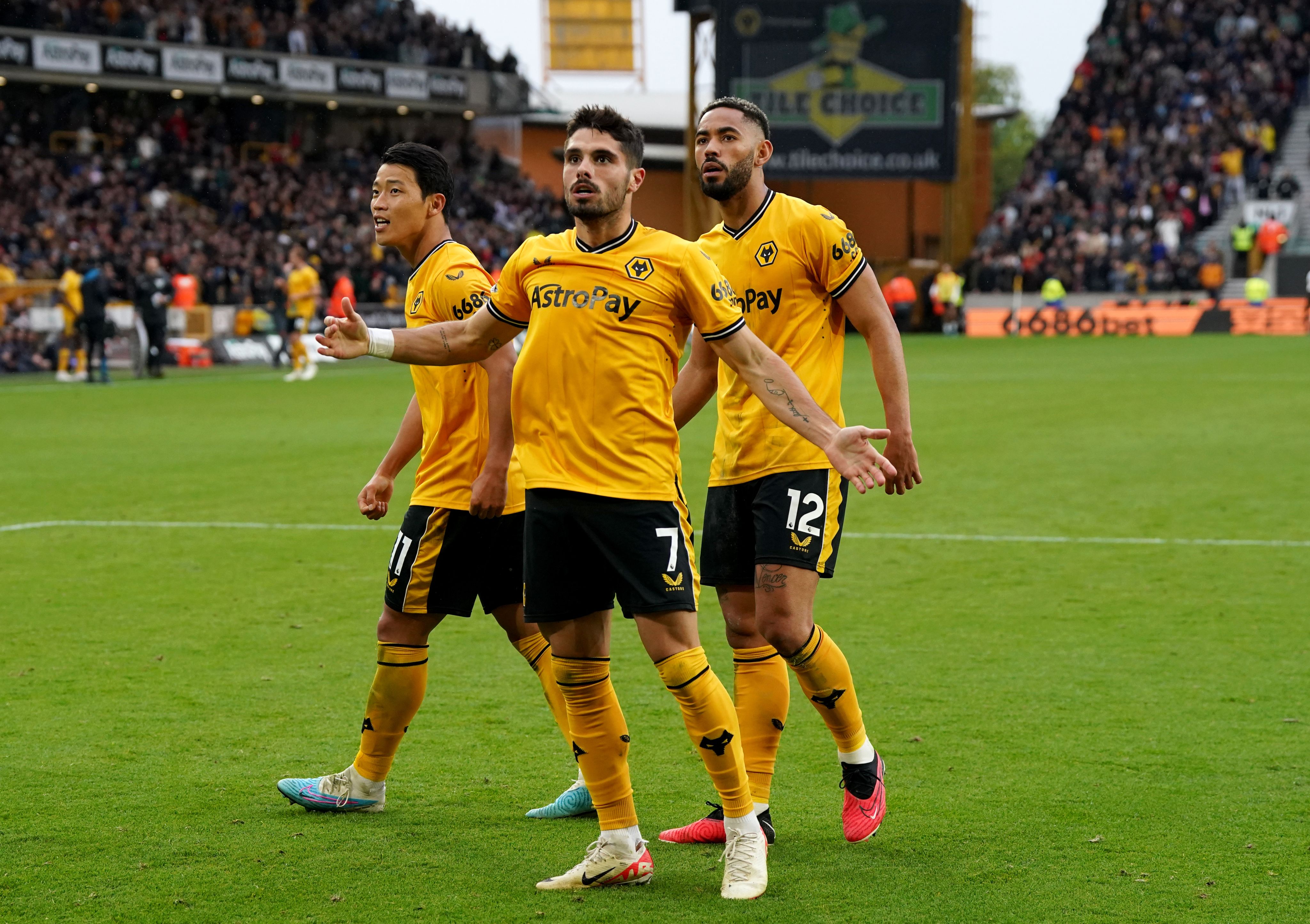
O’Neil won them over quickly.
The supporters took slightly longer.
Defeat to Ipswich in the Carabao Cup was a low point, having also lost four of his first five Premier League games in charge, but victory over champions Manchester City proved a turning point – both in terms of fan feeling and the tactical shift implemented by O’Neil.
“He had to change to three at the back,” Hobbs explains. “I still think that somewhere in our soul we suit a small squad with three at the back. No matter how many managers try to come out of it, we end up back there for some reason.
“Which is why I think he is so good. He had this idea of five in the build-up and five in the front line and that works sometimes but he has had to tweak it because both of our full-backs want to go. And he has moved Cunha from where he started him.”
The wider world had a glimpse of O’Neil’s tactical mind when he appeared on Monday Night Football in October outlining how his team found the spare man in beating Bournemouth. “What he did on there was a 10-minute version of what I saw over three hours.”
Hobbs points to the form since that 2-1 win over Pep Guardiola’s City side in September. Only six teams have picked up more points since. Wolves are closer to top spot than the relegation zone over that 21-game period dating back almost six months now.
“You can see how exciting it could have been if he had had a pre-season with this group. That is probably my own, not regret, but I do think it could have been a really special season if he’d had those eight weeks in the summer. But we will never know.”
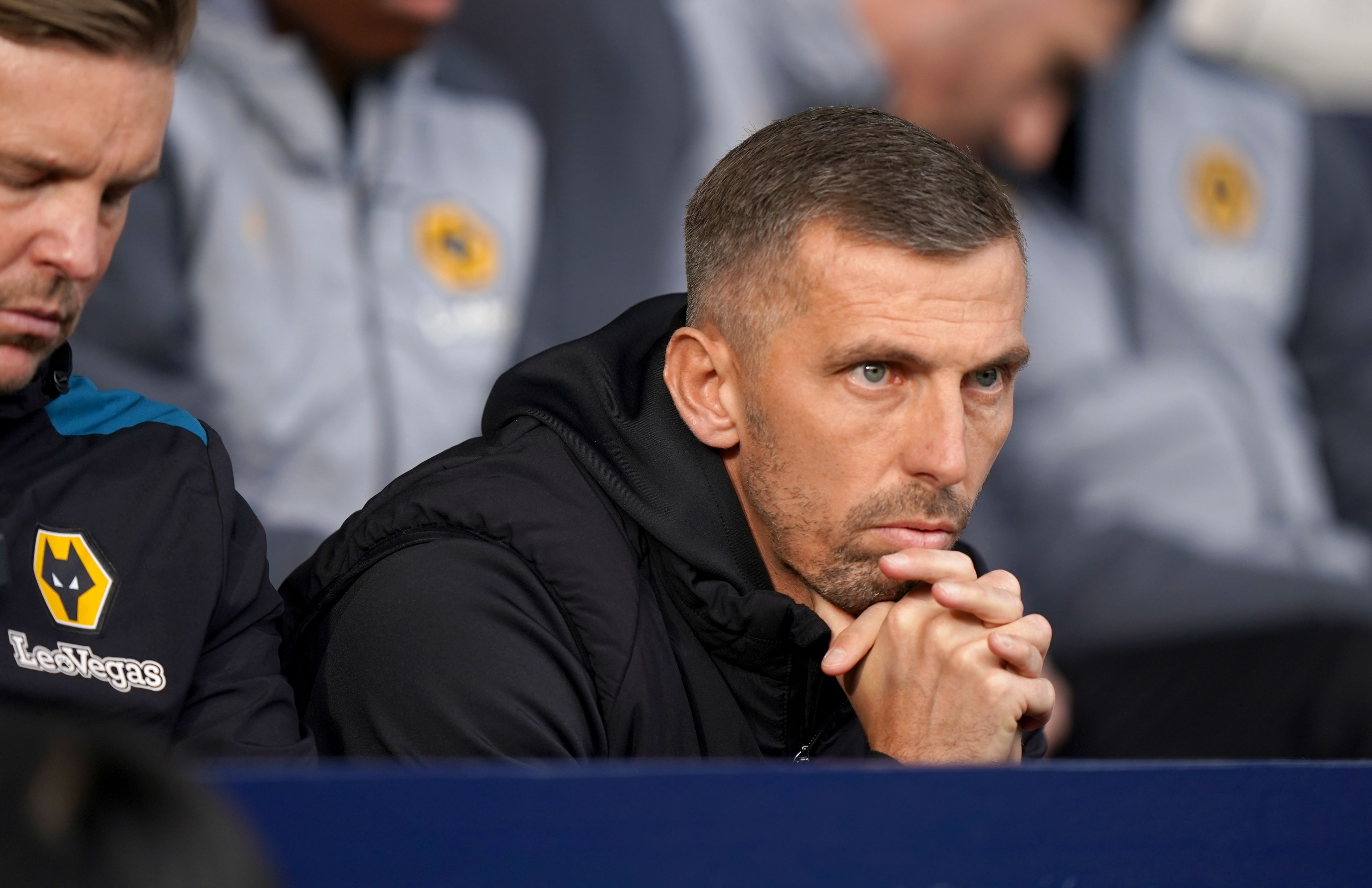
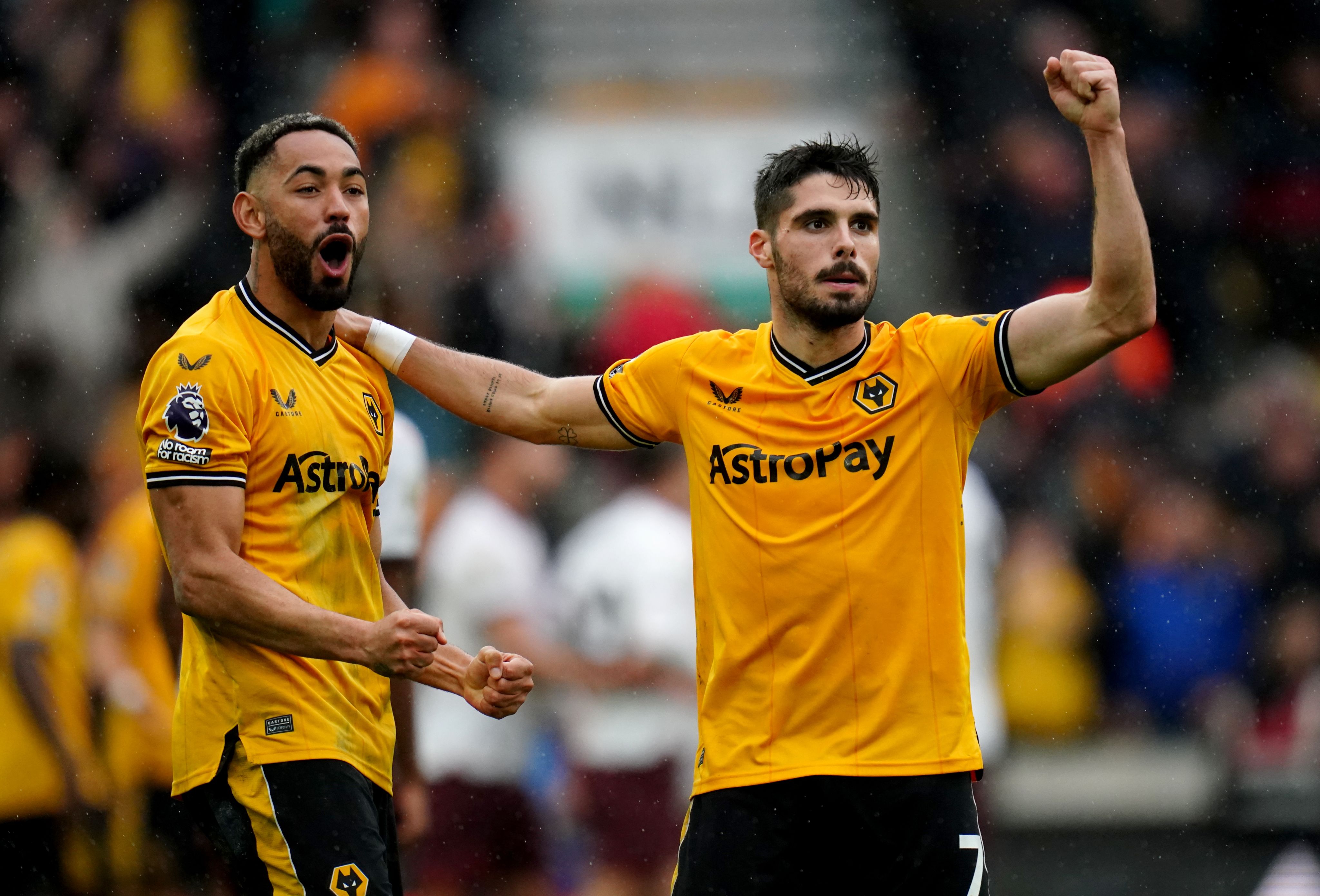
Making the numbers add up
This could still be an exciting season, of course.
The problem is that injuries to Hwang and Cunha have highlighted the limited options available to O’Neil. Youngsters Nathan Fraser and Tawanda Chirewa have been pressed into first-team action. At Newcastle, 15-year-old Wes Okoduwa was on the bench.
Wolves were close to bringing in a striker late in the January transfer window only for agent fees to scupper the deal. A move for Armando Broja from Chelsea was considered but would have necessitated a loan fee that the club felt they were unable to justify.
“We did not believe he would start for us. We thought he would be a fantastic option, for sure. So, committing ourselves to that, short term, where we were never going to pay the option price, would have been nice to have but was it really a necessity?
“If we finish the season and just miss out it would be like, ‘if we just had a little bit of a go.’ Which is what the fans want to hear, I understand that. But we are custodians so I have to make sure that whenever I leave the club it is in a better situation.”
The financial climate has dominated the season, Everton’s points deduction bringing to light the perilous financial circumstances many clubs are facing regarding profit and sustainability regulations. Wolves’ summer business makes a lot more sense to the public now.
The club had been cautious in its forecasts for the 2023/24 season – budgeting for a 17th-place finish. “Not that I expect us to finish there. But then we do not have to be reactive. We do not have to sell our players cheaper than we want or earlier than we want.”
That forecast has them meeting PSR with just £2.5m to spare for the three-year period from 2021 to 2024, although with a reward of £2.8m on offer for each place in the Premier League table, it is unlikely to be so tight. Might that have allowed them to spend?
“That was Gary’s argument too,” laughs Hobbs.
“If you have honest conversations at the start, you do not end up with the problem of ‘you told me this to get me here.’ Then you create a problem.” An allusion, perhaps, to the issues with Lopetegui. “Gary came knowing exactly what the situation was,” he adds.
“In the end, he said that he trusted us that if we didn’t think there was a right one to do, don’t worry about it. I think our relationship helps. If you look at the forwards that moved there was not anyone that really would have worked for us.”
A new way of recruiting
Wolves want to be more considered in the market. The signings in January 2023, with the club having been bottom at Christmas, saw them correct course. “The difficulty comes when we do what we did in summer ’22, very high-wage players, high transfer fees.”
The expensive acquisition of Goncalo Guedes did not work out. Bruno Lage was sacked by October. “Then you swap managers which is a problem because you build a squad for one manager which he believes in and then another comes and you have to rebuild.”
Hobbs’ background is in this space – he was Wolves’ chief scout and head of player recruitment before his appointment as sporting director. There is a hint of regret at some of the business that was done before he was given his wider brief in November 2022.
“We did a lot of work on a lot of players that would have fitted and we would not be in this situation that we are now but we did not have the final say on anything then.”
Hobbs went to Argentina in an attempt to acquire Enzo Fernandez from River Plate in the window before he ended up going to Chelsea for over £100m. “It would have been the right price-point, so there are players out there.”
So, what is the new vision for a Wolves signing?
He talks of being “an underdog” and “a disruptor” – trying to find another Max Kilman, who was signed from Maidenhead for £40,000. “I like finding Max. We find Joao [Gomes] before anyone else does it and that actually excites me more than spending £40m on a player.”
Joao Gomes cost £12m from Flamengo, Pedro Neto was a similar fee when he arrived. “At Lazio he could barely get a kick.” Rayan Ait-Nouri arrived from Angers for £10m, a bargain now. And how about just £5,000 for young Spanish left-back Hugo Bueno?
“You are not going to get many Hugos and Maxs, I understand that, but Rayan, Pedro, Joao, that is the perfect age and ability. When you do it at that level, the ones you get wrong are way less detrimental to everything than if a £30m signing does not work.”
He talks of Brighton being a blueprint given their success. But it is mainly about having a clear idea.
“Everything comes back to the strategy. Stick to that. Do not get carried away, like it would be easy to do now,” he explains. “This is who we are, these are the type of transfer fees that we are going to spend, these are the kind of markets we are going to look in.”
The Joao Gomes example
Brighton’s success buying from South American has become a template for others but Wolves can point to their own example from the continent in young Brazilian midfielder Joao Gomes. He has been a revelation at Molineux with his tough-tackling approach.
The player captured the imagination even before his arrival, the delay in his deal leading to a ‘Free Joao Gomes’ campaign among fans. “They buy into Joao Gomes. Obviously, the story helped with them not letting him come and the whole thing built up.”
But it is about more than that, argues Hobbs. More even than the potential of any particular market. “For me, it is about trying to get them to buy into the type of team that we are creating and get behind it that way and for us to constantly be looking to overachieve.
“It is the type of player that he is, celebrating tackles. He did that back in Brazil, with random tackles that really don’t need a celebration but he does it. The fans see that and they like it and that is why they buy into it and that is why we do so much work on personality.
“It has to fit this club.”
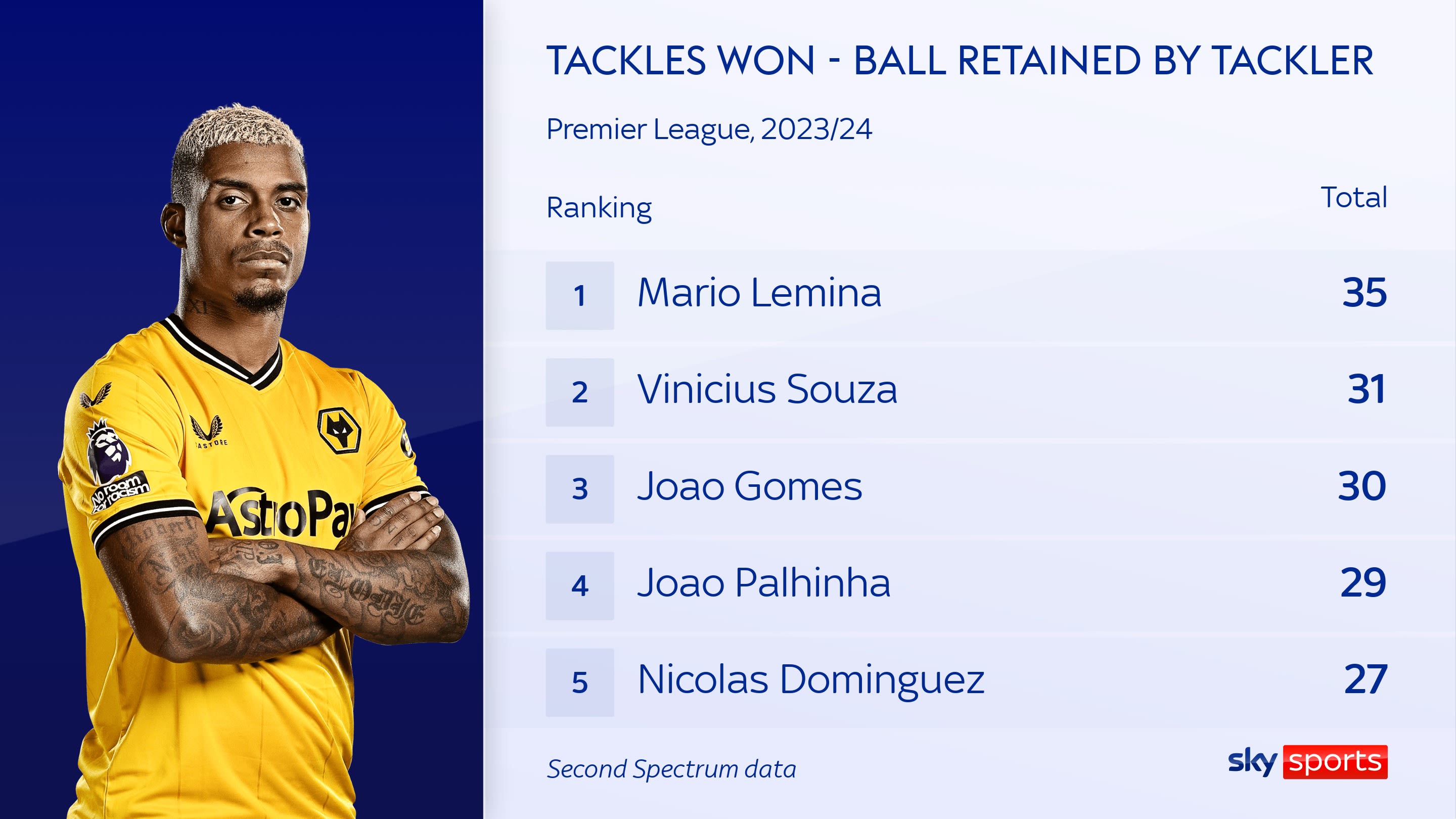
There is a feeling that Wolves moved too far away from that natural fit.
This season, no player in the Premier League wins - and keeps - the ball more than Mario Lemina as a result of tackles. Joao Gomes is not far behind.
“Most of our fans are grafters who are out working,” says Hobbs. “They want to see the players doing that on the pitch, which I do not think they saw at the end under Bruno, which is how it became misaligned. Julen brought it back a little bit.”
O’Neil has embraced it fully. “You have to put a team on the pitch that they can see themselves in,” adds Hobbs. “I think we probably did not have that for a period of time but I think they can see it in this group. They will moan sometimes but they will get behind it.”
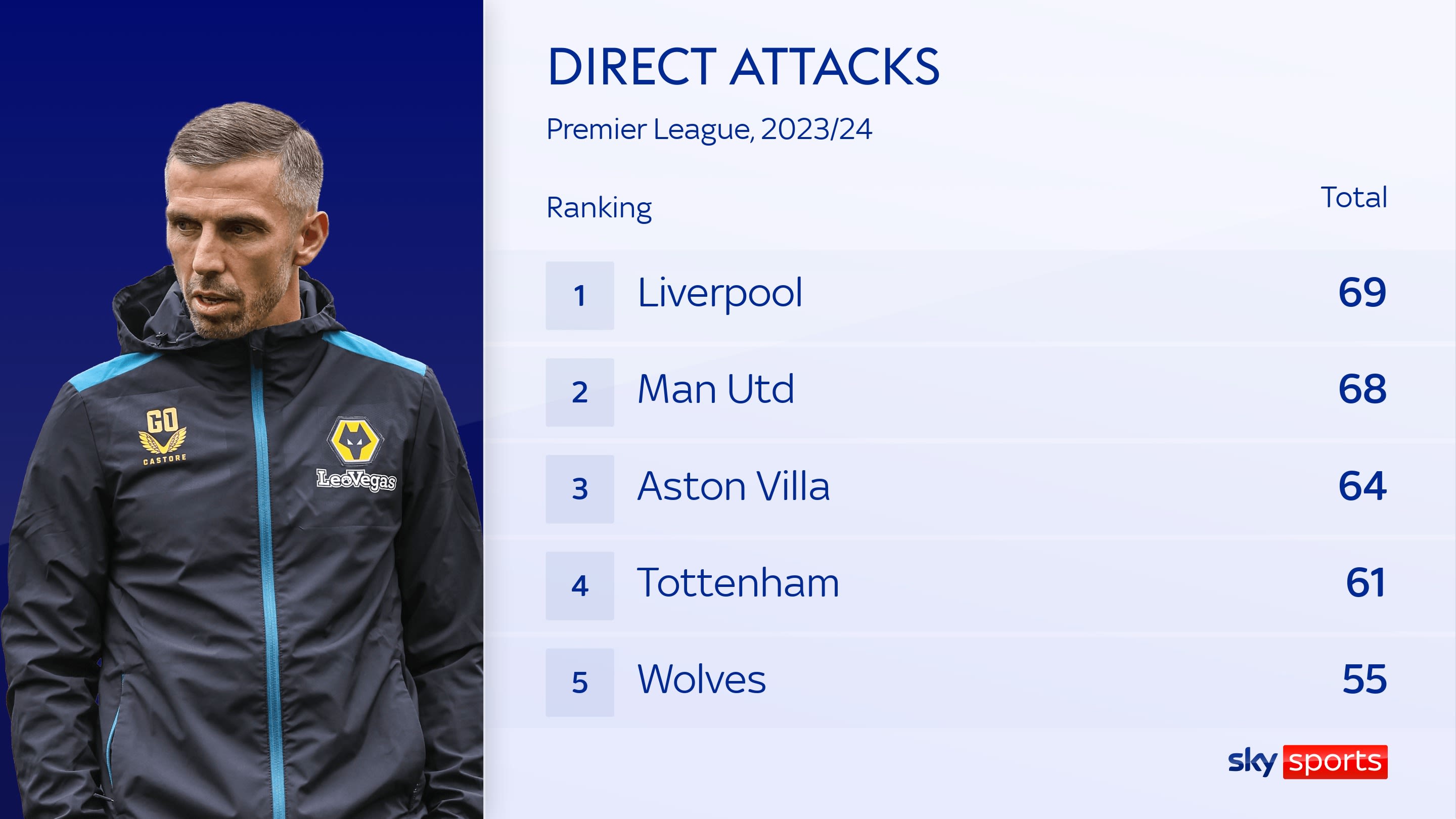
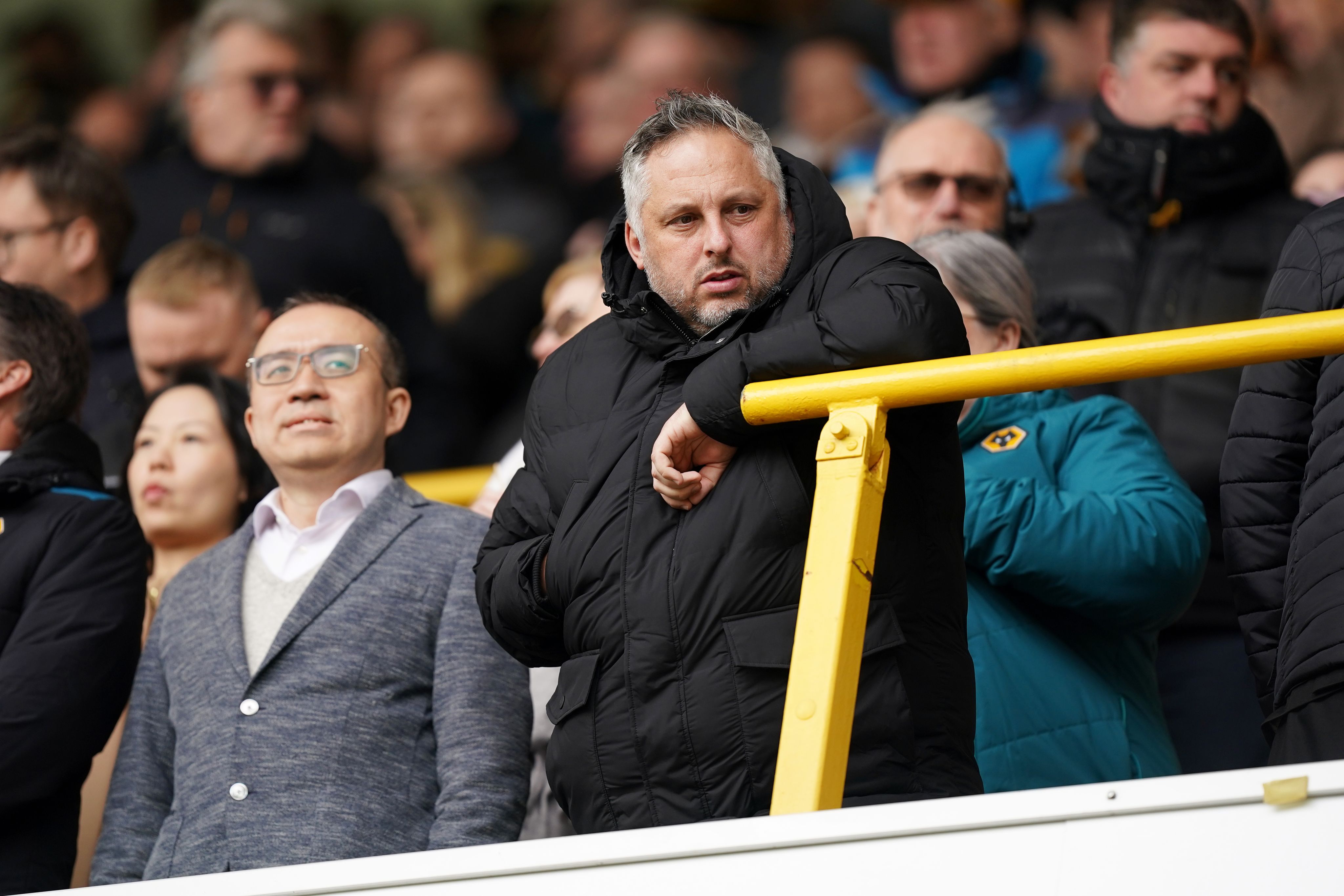
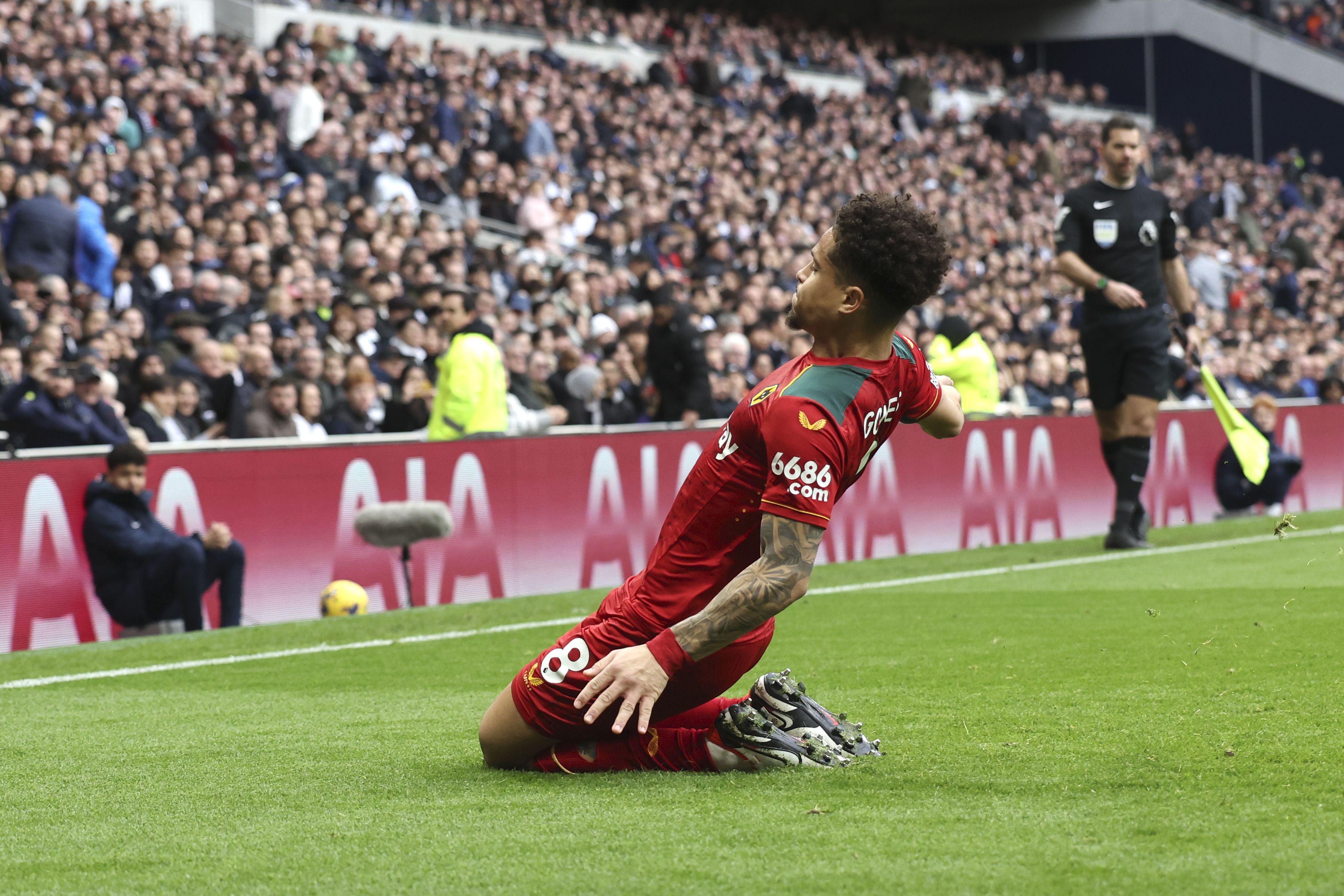
Model means selling to buy
Wolves owners Fosun have a loan of £82m on the balance sheet that will soon be converted into equity. Their investment in the club has been significant. But the plan going forward is for Wolves to find a sustainable way to survive and thrive as a Premier League club.
Hobbs believes that it is possible.
“I do not see why we feel we have a given right to expect people to put money in,” he says. “I would rather that money go into the stadium, training ground, build something that leaves a footprint for the club and on the pitch we can be self-sustainable, no problem.”
That will likely mean selling a high-value asset so that funds can be reinvested.
“We have to be honest. Since I have come in we have tried to communicate better and be honest with fans. They will either like what I say or largely dislike what I say but what they cannot ever do is accuse us of not communicating.
“Essentially, every summer I probably have to sell someone at a high value. The fewer I can sell to raise money, the stronger we will be as a club. Let’s say I want to raise £60m to invest next summer. If I can sell one to do that, that is much better than selling two or three.”
“You have to be ready for it. You have to do your work in the background on players. You have to expect someone will come in for Joao Gomes. Do I think Joao wants to go? No. But the way he is playing, there will be clubs watching him for sure. I know there are.”
Wolves have players capable of going on to bigger things with Neto also highly prized. It is easy to envisage Ait-Nouri flourishing at the top end of the game. But Hobbs is keen to stress that the intention is for this to be a virtuous cycle as they find their own next big thing.
He knows that “not everyone is going to do a Ruben and do two years longer than we thought” but sales are expected to be strategic. There is little pressure to sell. “I am not sure the same market is there now. I do not see three or four £100m players going.”
Importantly, that is not the mood at Molineux right now anyway.
“I was chatting to Mario just after Christmas and he said he is expecting us to be there or thereabouts for Europe. These players have an expectation on themselves that if they perform to the level they can, they believe they have the ability to get into the top eight.
“There are no players itching to get away. They have bought into Gary and everyone is on the same page.”
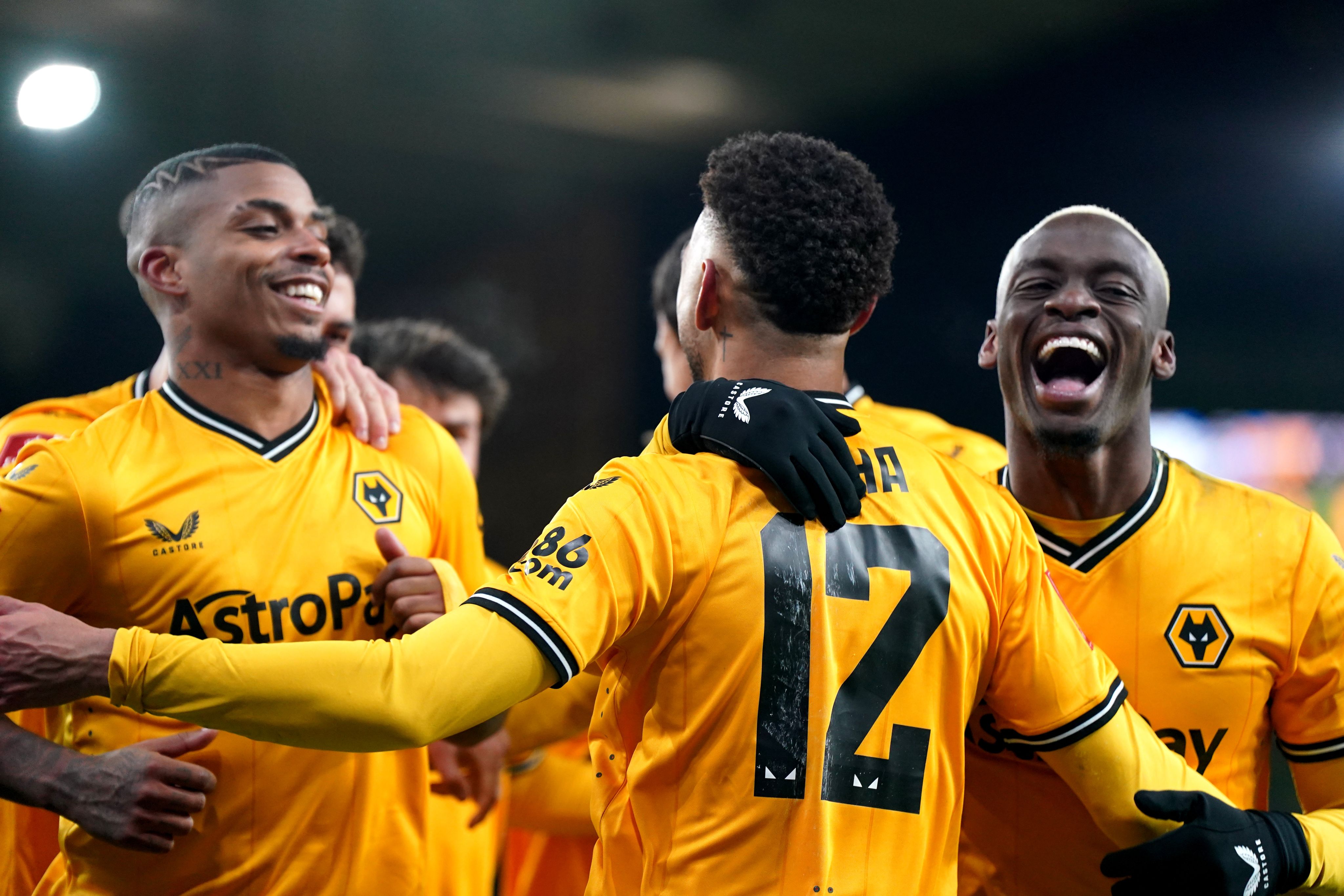
What next for O’Neil?
O’Neil himself could be in demand soon.
He is already among the favourites to be the next England manager.
“They should be looking at him,” says Hobbs. “I get it. He is excellent and I would be surprised if clubs weren’t looking at him.
“We will be doing work on other head coaches, not because we want Gary to leave but because that is the prudent thing to do.”
But the plan is to reward him with a new contract.
“That is naturally where this is going, he has done well enough to have that conversation.
“Part of that conversation will be the plan for the club and that is where you have to have the honest conversations about what it looks like going forward.”
But the message at Wolves is that prudence does not have to mean paucity of ambition.
“Just because we are doing it this way does not mean we have got to sit between 10th and 17th every year.”
Crisis averted, and with clarity over the plan, Wolves are looking up again.


